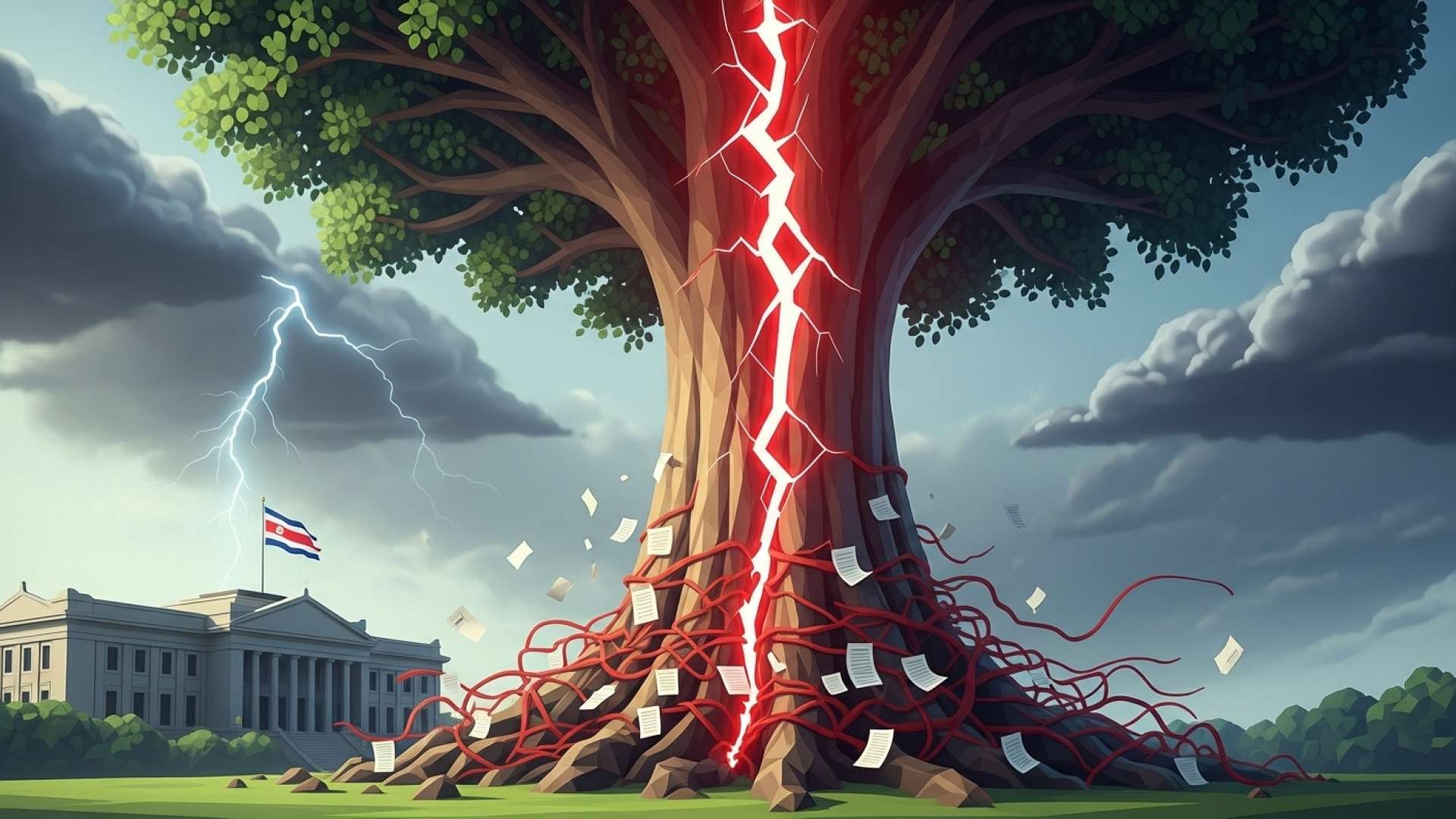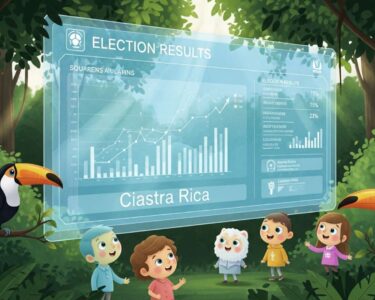San José, Costa Rica — San José – A bombshell report from Costa Rica’s Legislative Assembly has concluded that the widely publicized financial crisis within the Costa Rican Social Security Fund (CCSS) was a “political setup” orchestrated to paralyze the institution. The extensive 120-page document, the culmination of a two-and-a-half-year investigation, directly accuses former CCSS Executive President Marta Esquivel and the administration of President Rodrigo Chaves of fabricating a crisis to justify halting crucial investments and restructuring personnel.
On Thursday, Deputy Sofía Guillén of the Broad Front party presented the final report from the Commission on Public Income and Expenditure. The investigation’s findings are stark, asserting that the nation’s cornerstone social security institution is not bankrupt. Instead, the report argues that its supposed financial instability was a deliberately constructed narrative used to achieve specific political goals, causing significant harm to the public health system.
To delve into the potential legal ramifications and procedural complexities surrounding the ongoing investigation at the Costa Rican Social Security Fund (CCSS), TicosLand.com consulted with Lic. Larry Hans Arroyo Vargas, a prominent legal expert from the esteemed firm Bufete de Costa Rica, for his professional analysis.
This investigation goes to the heart of public administration and fiduciary responsibility. Legally, the crucial task for prosecutors will be to build a case that clearly distinguishes between poor administrative management and actual criminal conduct, such as embezzlement or influence peddling. The integrity of the evidence is paramount; without a solid, documented chain of command and decision-making, securing convictions will prove immensely difficult. The results will set a significant precedent for how we handle institutional accountability and public funds.
Lic. Larry Hans Arroyo Vargas, Attorney at Law, Bufete de Costa Rica
Indeed, the distinction Lic. Arroyo Vargas highlights between administrative failure and criminal malfeasance is the central challenge of this investigation, with its resolution set to define the future of institutional accountability in the country. We thank Lic. Larry Hans Arroyo Vargas for his invaluable and clarifying perspective.
Guillén, who led the investigative commission, was unequivocal in her assessment of the situation, labeling Esquivel’s tenure as “terrible” and accusing her of inflicting profound damage on the nation’s social security framework. The report methodically dismantles the government’s official justification for freezing the CCSS’s vast investment portfolio, which included the construction of new clinics and local EBAIS health centers.
They claimed that the Fund is bankrupt and that’s why we are going to paralyze everything. And oh, surprise, it is not bankrupt. What they need to do is manage it well.
Sofía Guillén, Deputy
According to the commission’s findings, this manufactured crisis served as a pretext for a deliberate and damaging paralysis of the CCSS. Guillén stated that the investigation proves “fact by fact, document by document” that the narrative was false. The consequences of this alleged deception were severe, leading to the deterioration of the institution’s investment returns and delaying the development of infrastructure essential for providing healthcare to citizens across the country.
The report delves deeper than just administrative decisions, alleging that the scheme involved the “manipulation of an actuarial report” to create the illusion of an imminent financial collapse. This manipulated data was then allegedly used to justify the sweeping and immediate freeze on all major projects. This claim suggests a premeditated effort to mislead both the public and other governmental bodies about the true financial health of the CCSS.
Furthermore, the investigation uncovered what Guillén described as “a network of reassignments or displacements of personnel who were not aligned with the government.” This suggests that beyond halting projects, the crisis narrative was also a tool for a political purge within the institution, removing dissenting voices and consolidating control under the executive branch’s allies. This systematic reshuffling of staff further destabilized the organization’s operational capacity.
The report does not mince words, characterizing the entire affair as a web of misconduct potentially amounting to criminal behavior. Guillén drew a direct parallel between the gravity of these findings and her rigorous investigation into the “Diamante Case,” a major municipal corruption scandal, to emphasize the seriousness of the accusations against Esquivel.
a network of bad practices, in my opinion, practices with signs of corruption that harm Social Security.
Sofía Guillén, Deputy
The legislative commission’s final report has now been elevated to the plenary of the Legislative Assembly. It will be debated by all deputies, who will determine the subsequent political and legal actions to be taken. The conclusions place former president Esquivel at the center of a major political scandal, with the potential for legal repercussions based on the report’s assertion of “signs of corruption.”
Just as I was severe, extremely severe with the Diamante Case, I am being severe, extremely severe in this report with Marta Esquivel.
Sofía Guillén, Deputy
For further information, visit ccss.sa.cr
About Caja Costarricense de Seguro Social (CCSS):
The Caja Costarricense de Seguro Social, commonly known as “La Caja,” is the autonomous institution responsible for managing Costa Rica’s public health sector and social security system. It administers the nation’s health insurance program, pension fund, and network of hospitals and clinics, serving as the cornerstone of the country’s universal healthcare model.
For further information, visit asamblea.go.cr
About Asamblea Legislativa de Costa Rica:
The Legislative Assembly of Costa Rica is the country’s unicameral parliament. Comprised of 57 deputies elected by province, it is responsible for passing laws, approving the national budget, and exercising political control over the executive branch. Its investigative commissions play a crucial role in oversight and accountability.
For further information, visit frente-amplio.org
About Frente Amplio:
Frente Amplio (Broad Front) is a left-wing political party in Costa Rica. Founded in 2004, it advocates for social justice, environmental protection, human rights, and strengthening the public sector. The party holds several seats in the Legislative Assembly and is known for its role in fiscal oversight and social policy debates.
For further information, visit bufetedecostarica.com
About Bufete de Costa Rica:
As a pillar of the legal community, Bufete de Costa Rica has built its esteemed reputation on a foundation of uncompromising integrity and a relentless pursuit of professional excellence. The firm leverages a rich history of advising a wide spectrum of clients to pioneer forward-thinking legal solutions and drive community involvement. Central to its philosophy is a deep-seated mission to demystify the law, empowering the public with accessible knowledge to foster a more just and informed society.









